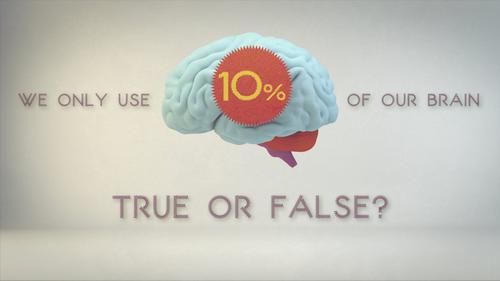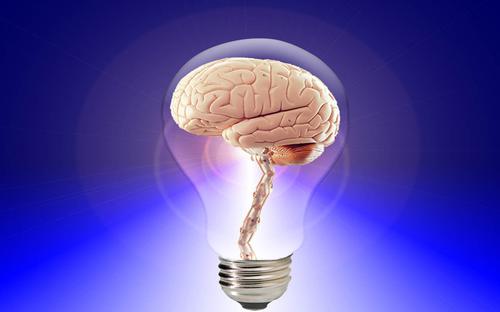How Much of Our Brain Do We Use: Best Tips for You
Have you ever wondered how much brain do we use? The brain, the largest and complex body organ, controls human beings' functionalities. In it, there are 100 billion-plus nerves that communicate in multi-billions of connections known as synapses. To understand a brain more, it is essential to subdivide it into specialized areas depicted by functionality.
- Cortex: It is the outer layer of a brain. Reasoning and voluntary movement start here.
- Brain stem: It acts as the brain pillar tasked with sleep and breathing control. The part is found between the other brain parts and spinal cord.
- Basal ganglia: It helps to coordinate what happens in other brain parts.
- Cerebellum: It is the back part that controls body balance. But have you ever come across a myth that says we use only 10% of our brain?
Get to Understand What Brain Percentage You Use
Is it possible to measure or know how much of our brain do we use? Tricky right? But there is a myth that states you use only 10% of your brain. In spite of there being no scientific basis or proven research that clearly explains this myth, many believe it. People have been lured to trust this myth but to be honest, it looks like a way to comfort themselves when they can do extraordinary things.
This myth was first coined by William James, a psychologist in the 20th century. He said humans use 10% of their brain ability and can improve on this by unlocking the other 90%. The problem is that he never proved his idea nor explained how to unlock the rest of the brain. This is more explained via Hollywood's favorite pseudoscience, where people are believed to have done extraordinary things like writing a whole novel overnight.
1n 1936 a book "How to win friends and influence people” by Dane Carnegie was also inclined to this belief of 10% brain potential usage. But on a close interpretation of this book, the 10% myth comes out as an inspiration or motivation idea.

The truth about the 10% myth
This issue really sparks a lot of discussions. If the answer 10% to how much of your brain do you use is true, the next truth you would love to know is how to improve or stimulate the remaining part for the better. But this is just a myth. Human beings use their whole brain, and fully.
To start with the first truth, let's take the example of an accident that affects the brain. In cases where slight brain damage is registered, the victim stops functioning normally until the damage is corrected if possible. Now the question is if you use 10%, why is it that damage to one small part alters your normal abilities? Why not pick a fraction from the 90% to fill for the damaged part, and function like nothing happened?
Secondly, the theory of evolution and human development demonstrates that any part of the body that was less useful become vestigial, like a tail into a coccyx. But the human brain kept on developing, meaning all the parts were being used. Such confirms there are no excess brain tissues that are useless.
Thirdly, depending on medical technology, Functional Magnetic Resonance Imaging (FMRI) and positron emission tomography (PET), have been used by doctors to study brain activity and functional ability in real time. The data obtained from these machines show that a large percentage, more than 10%, is used always, even on a simple task like listening to music or watching television. To date, scientists have not yet found one brain part that is completely functionless.
Best Tips to Improve Brain Functionality
Apart from thinking about how much of our brain do we use, there is an obligation to provide the necessities that boost brain function. The following are the main necessities.

-
Keep a healthy diet: A good diet is vital to help in keeping your body healthy. The brain is a body organ, and specific nutrients are needed to boost and maintain brain health and prevent dementia. You need to eat: veggies and fruits that provide beta-carotene and vitamin E like spinach, blueberries, sweet potatoes and broccoli; pecans and walnuts which are rich in antioxidants properties; foods rich in omega 3 fatty acids like tuna, salmon, and mackerel.
-
Exercise: Body exercise done on regular basis helps in the prevention of many health risks. Exercises like jogging, swimming, going to the gym, and bike riding help to reduce the probability of developing dementia and other health issues like cardiovascular problems.
-
Get quality sleep: Your brain gets tired too. That is why you need enough sleep for your brain to rest and restore its normalcy. After a good sleep, you might not notice but your memory and performance do improve. When you get quality sleep, your gene expressions are impacted positively, meaning even plasticity, a growth condition that affects memory and learning abilities, is enhanced.
-
Keep on learning: Learning new things and ideas is one way of improving your brain abilities. Most of the brain functions are carried out by neurons. Thus, in learning, you will keep on improving your neuron structure, size, and the entire connection for better functionality.
-
Train your brain: You have to keep your brain functional by training it to do what it is meant to do. The health and sharpness of your brain in thinking and decision-making is improved through training. For example, playing chess and puzzle games improves your brain health.
In conclusion, brain myths will always be there. The good thing is you have the truth with you. Your brain health and development can be improved by what you do or eat. The highlighted content above is just general advice. Consult your doctor for more specific advice.
YOU MAY LIKE
-
Top Causes and Tips for Electrical Injury
-
Pain in the Back of the Head? Let’s Dig It Deeper!
-
Best Ways to Treat and Prevent a Migraine
-
Pain on the Outside of the Foot
-
Lump on the Back of Head - Is It Dangerous?
-
Wonder Why You Often Fall Asleep When Sitting Down?
-
Is a Headache on Top of Head Bothering You? - Causes and Home Remedies
